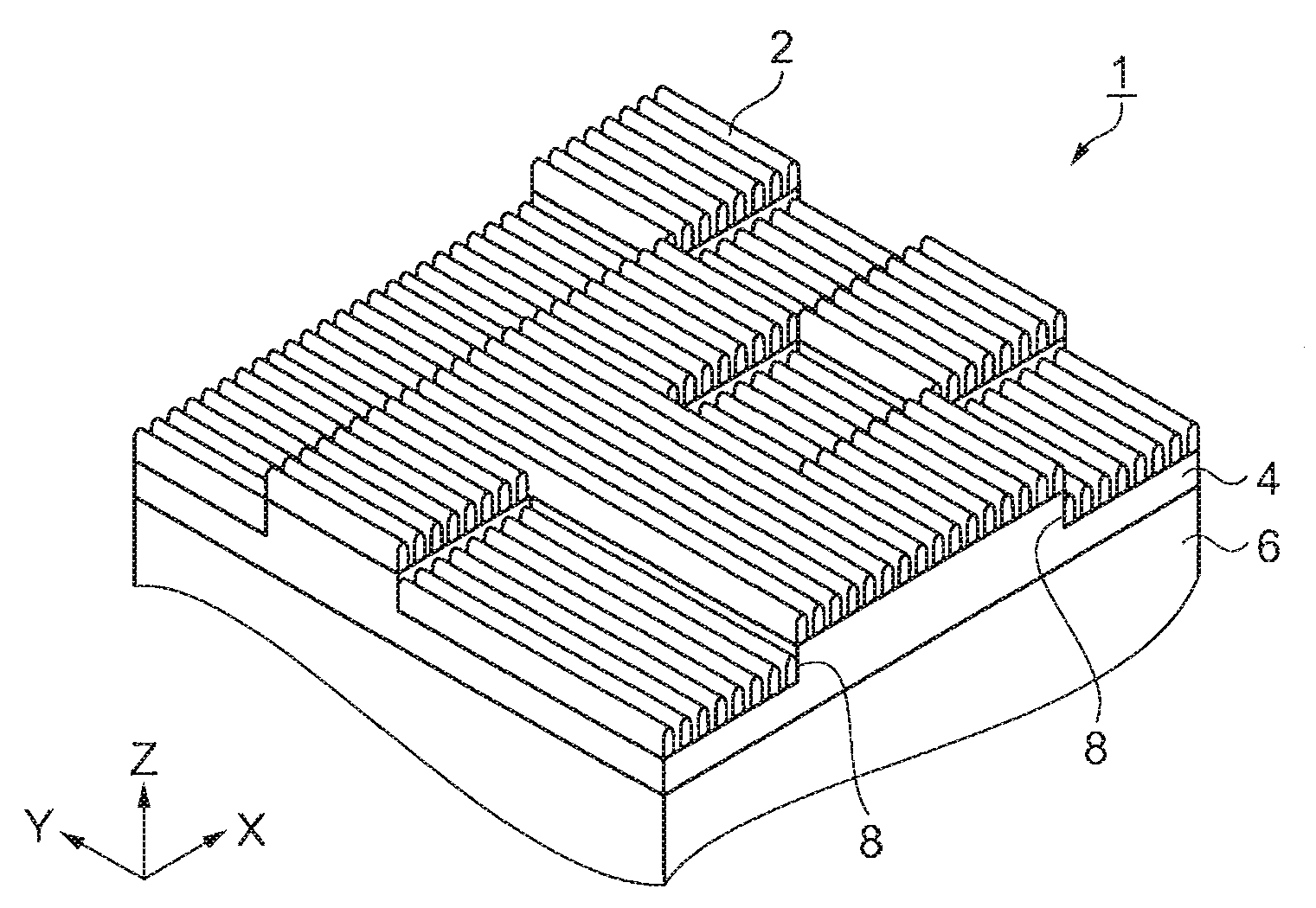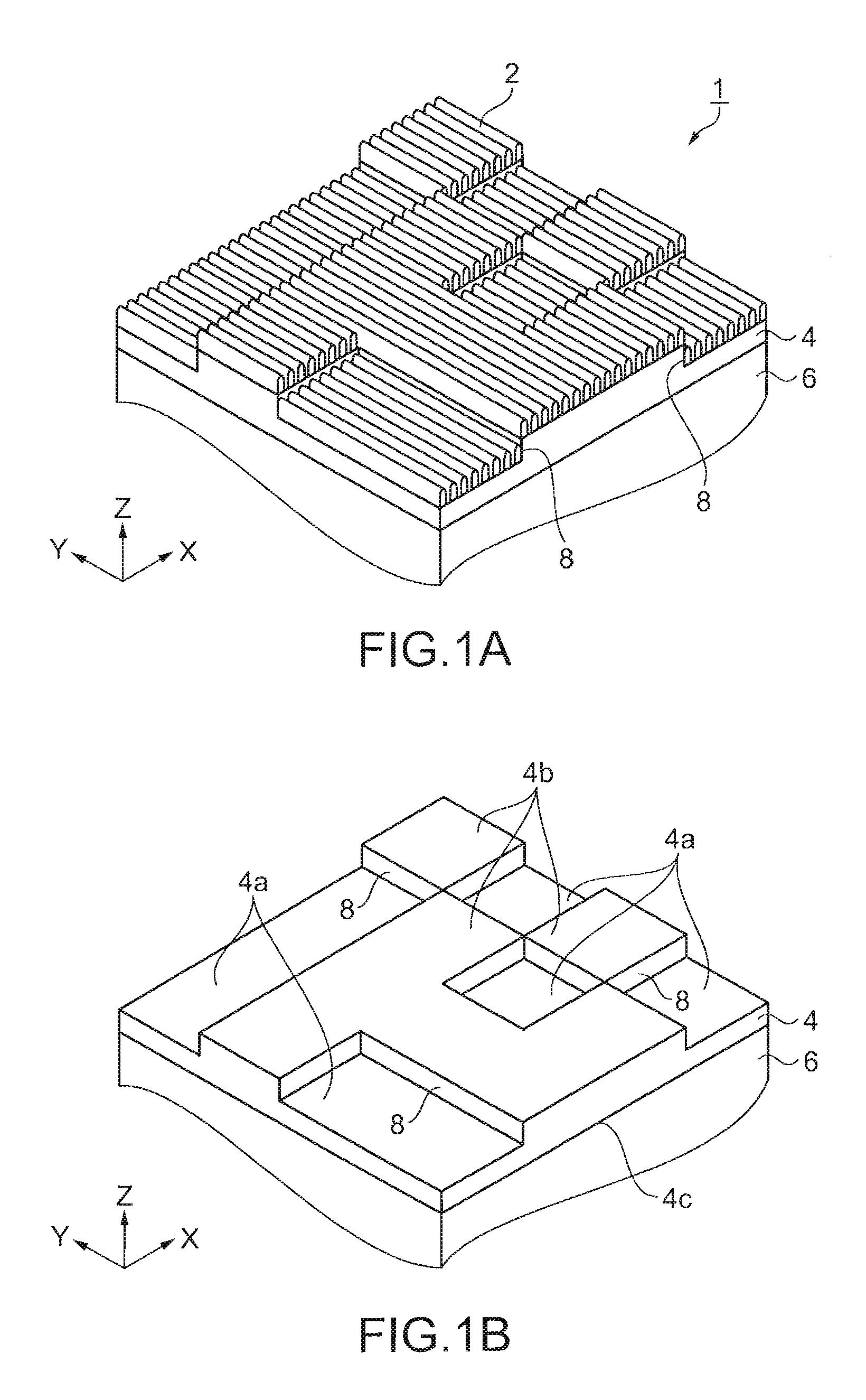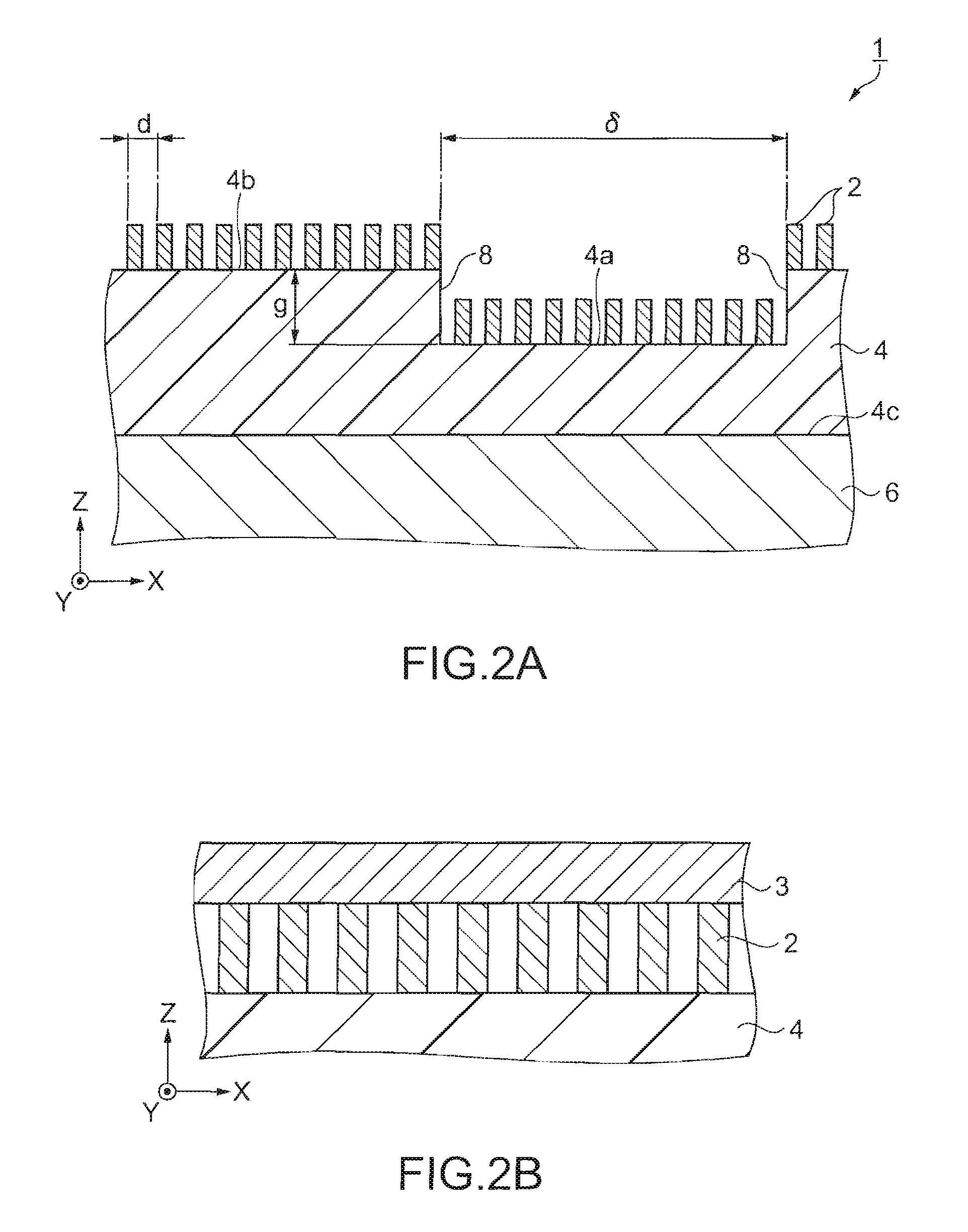Optical element and projection display device
a technology of optical elements and projection display devices, which is applied in the direction of projectors, polarising elements, instruments, etc., can solve the problems of reducing the lifetime or unstable operation of the liquid crystal device, and the instability of fine wires arranged in the vicinity of the steps, so as to reduce the diffusion effect of transmitted light and maximize the diffusion effect of reflected ligh
- Summary
- Abstract
- Description
- Claims
- Application Information
AI Technical Summary
Benefits of technology
Problems solved by technology
Method used
Image
Examples
first modification
[0108]As described above, according to the optical element 1, the diffractive functional layer 4 provides the reflected light 80r with an appropriate intensity distribution and range. Here, a spatial intensity distribution of the reflected light 80r is controlled in accordance with the shape or the size of the liquid crystal device 10, by improving either an order of an alignment of the concaves and convexes of the diffractive functional layer 4 (i.e. the arrangement of the first regions 4a and the second regions 4b) or a planer shape thereof. In other words, the reflected light 80r can be collected to a specific location.
[0109]For instance, the shapes of the first regions 4a and the second regions 4b in the diffractive functional layer 4 are not limited to the ones illustrated in FIGS. 1A, 1B, and 3A, but may also include the shape illustrated in FIG. 13. Referring to FIG. 13, the black regions are equivalent to the first regions 4a , and the white regions are equivalent to the sec...
second modification
[0114]The projector 100 may have a structure in which a plurality of liquid crystal devices 10 is used. FIG. 16 is a schematic drawing illustrating an optical system of the projector 100 provided with three liquid crystal devices 10. This optical system includes a prism 53 provided with four planes, the optical element 1 arranged to face one of the planes of the prism 53, and the liquid crystal devices 10R, 10G, and 10B arranged so as to respectively face the other three planes of the prism 53. The prism 53 refracts light beams entering from the liquid crystal devices 10R, 10G, and 10B, and enters the light beams into the optical element 1. That is to say, the prism 53 is arranged in the optical paths reaching the optical element 1 from each of the liquid crystal devices 10R, 10G, and 10B. The liquid crystal devices 10R, 10G, and 10B respectively modulate the intensity of red, green, and blue light beams. Display light is obtained by synthesizing the intensity-modulated light beams ...
third modification
[0120]A substance with a refraction index larger than 1 may be deposited on the side of the grid 2 in the optical element 1. FIG. 18 is a sectional drawing illustrating a state in which a SiN layer is deposited on the optical device 1. Illustration of the sealing layer 3 (FIG. 1B) is omitted in FIG. 18.
[0121]When controlling the diffusion effect of the optical element 1, the optimal value of the height g of the steps 8 in the diffractive functional layer 4 depends on a refraction index n of the surrounding media, as explained in formula (1). For instance, if SiN (n≈1.5) is used as the surrounding media as illustrated in FIG. 18, the height g is reduced compared to the case of the surrounding media such as air (n≈1.0). The smaller the height g of the steps 8, the manufacturing processes of the grid 2 including photolithography become easier, allowing the easier manufacturing of the grid 2.
Forth Modification
[0122]A field lens 52 may be arranged as a collective lens at an optional posi...
PUM
 Login to View More
Login to View More Abstract
Description
Claims
Application Information
 Login to View More
Login to View More - R&D
- Intellectual Property
- Life Sciences
- Materials
- Tech Scout
- Unparalleled Data Quality
- Higher Quality Content
- 60% Fewer Hallucinations
Browse by: Latest US Patents, China's latest patents, Technical Efficacy Thesaurus, Application Domain, Technology Topic, Popular Technical Reports.
© 2025 PatSnap. All rights reserved.Legal|Privacy policy|Modern Slavery Act Transparency Statement|Sitemap|About US| Contact US: help@patsnap.com



